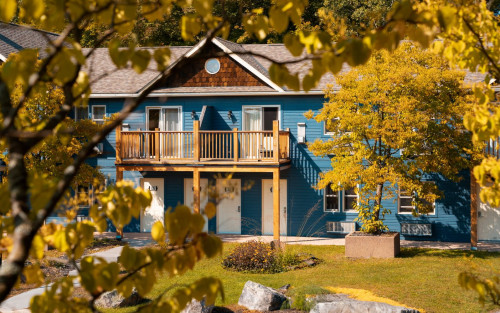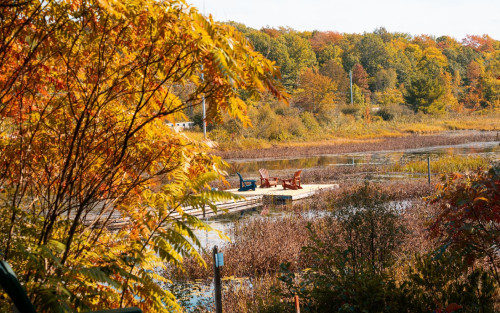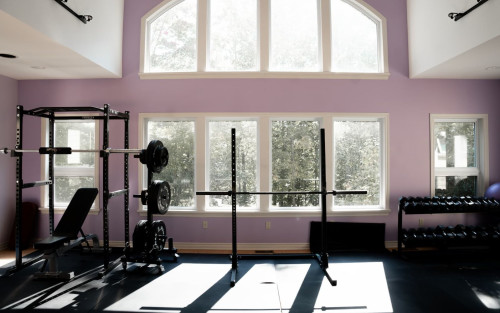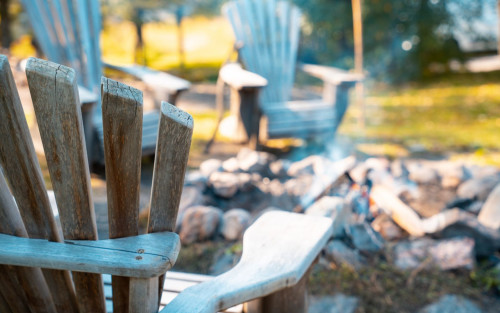








GreeneStone Centre for Recovery
This provider's information has been quality-checked by Recovery.com's Research Team for accuracy and completeness, including center verification through appropriate third-party organizations.
Treatment Focus
This center treats primary substance use disorders and co-occurring mental health conditions. Your treatment plan addresses each condition at once with personalized, compassionate care for comprehensive healing.
Primary Level of Care
Offering intensive care with 24/7 monitoring, residential treatment is typically 30 days and can cover multiple levels of care. Length can range from 14 to 90 days typically.
Treatment Focus
This center treats primary substance use disorders and co-occurring mental health conditions. Your treatment plan addresses each condition at once with personalized, compassionate care for comprehensive healing.
Primary Level of Care
Offering intensive care with 24/7 monitoring, residential treatment is typically 30 days and can cover multiple levels of care. Length can range from 14 to 90 days typically.
Provider's Policy
We accept payments through insurance companies that cover non-provincially funded inpatient or virtual addiction treatment. However, it is the responsibility of the individual or payor to confirm with their insurance provider whether our services are covered under their policy and the extent of that coverage.
GreeneStone Centre for Recovery
GreeneStone Centre for Recovery
About GreeneStone Centre for Recovery
You didn’t choose addiction, but you can choose a better recovery experience. Stay in a natural, cabin-style environment where treatment is tailored just for you, instead of a cold and depressing setting. .
GreeneStone provides a holistic detox and recovery program in a private, spacious environment on the shores of Lake Muskoka. The property offers a variety of outdoor activities and amenities that provide ample opportunities for entertainment and/or self-care. Their holistic treatment approach simultaneously addresses underlying and concurrent disorders so recovery can be as comprehensive and effective as possible. Book a tour of our centre and property! With no wait times, you can start your recovery today.
Individual And Group Treatments
GreeneStone Centre for Recovery offers individual and group therapy sessions. Their groups cover relapse prevention strategies, process groups, integrated support for co-occurring disorders, sober living strategies, special-focus groups, and wellness activities. GreeneStone’s holistic treatment approach aims to simultaneously address underlying and concurrent disorders so recovery can be as comprehensive and effective as possible.
Thorough Aftercare
GreeneStone offers several aftercare options to support success post-treatment. Clients have 4 transitional therapy sessions with our aftercare therapist, and, if desired, access to sober companion services that can help clients adjust to a new lifestyle, with live-in support if needed. GreeneStone also hosts a robust Alumni Program that plays a vital role in the continuum of care after treatment. The program allows clients to stay connected with the GreeneStone community and provides an opportunity to give and receive support on their recovery journey. We invite clients to be active members in their alumni community by joining meetings, helping to create events, participating at gatherings, and supporting others in service.

Highlights from the Center
Highlights
These highlights are provided by and paid for by the center.
Nature Lovers
Perfect for Professionals
Trauma-Informed Care
Private Rooms Available
Center Overview
Treatment Focus
This center primarily treats substance use disorders, helping you stabilize, create relapse-prevention plans, and connect to compassionate support.
CARF Accredited
CARF stands for the Commission on Accreditation of Rehabilitation Facilities. It's an independent, non-profit organization that provides accreditation services for a variety of healthcare services. To be accredited means that the program meets their standards for quality, effectiveness, and person-centered care.

Insurance Accepted
Cash Pay Rates
Estimated Cash Pay Rate
Center pricing can vary based on program and length of stay. Contact the center for more information. Recovery.com strives for price transparency so you can make an informed decision.
Recovery.com Verified Listing
Recovery.com verified that the name, location, contact information and license to operate for this treatment provider are valid and up-to-date.

CARF Accredited

Licensed
Recovery.com is an independent, third-party mental health resource. Verification does not imply endorsement and does not guarantee the quality of treatment services.
Meet your care team

Alaina Kunder-Woods
Executive Director
MSc, CCAC

Dr. Vicky P.H.K. Nguyen
Psychiatrist, Medical Director
MD, PhD, FRCPC

Kyli Hingley
Director of Client Services

Everett Bell
Director of Operations




Treatment
Specializations
Equine Therapy
Guided interactions with trained horses, their handler, and a therapist can help patients improve their self-esteem, trust, empathy, and social skills.
Co-Occurring Disorders
A person with multiple mental health diagnoses, such as addiction and depression, has co-occurring disorders also called dual diagnosis.
Drug Addiction
Drug addiction is the excessive and repetitive use of substances, despite harmful consequences to a person's life, health, and relationships.
Executives
Executive treatment programs typically directly support the needs of people who manage businesses and may provide flexible schedules and office space to allow work during treatment.
Holistic
A non-medicinal, wellness-focused approach that aims to align the mind, body, and spirit for deep and lasting healing.
Detox
Detox fully and safely removes toxic substances from the body, allowing the next steps in treatment to begin with a clean slate.
Alcohol
Using alcohol as a coping mechanism, or drinking excessively throughout the week, signals an alcohol use disorder.
Who We Treat
Veterans
Patients who completed active military duty receive specialized treatment focused on trauma, grief, loss, and finding a new work-life balance.
Men and Women
Men and women attend treatment for addiction in a co-ed setting, going to therapy groups together to share experiences, struggles, and successes.
Young Adults
Emerging adults ages 18-25 receive treatment catered to the unique challenges of early adulthood, like college, risky behaviors, and vocational struggles.
LGBTQ+
Addiction and mental illnesses in the LGBTQ+ community must be treated with an affirming, safe, and relevant approach, which many centers provide.
Executives
Executive treatment programs typically directly support the needs of people who manage businesses and may provide flexible schedules and office space to allow work during treatment.
Midlife Adults
For adults ages 40+, treatment shifts to focus on the unique challenges, blocks, and risk factors of their age group, and unites peers in a similar community.
Pregnant Women
Addiction and mental health treatment meets the clinical and psychological needs of pregnant women, ensuring they receive optimal care in all areas.
Treatment Services
Residential
In a residential rehab program, patients live onsite, with access to daily treatment and 24-hour care. An average stay is 30-90 days.
Outpatient
During outpatient rehab, patients attend a structured treatment program while continuing to live at home.
Recovery Coaching
A support service designed to help individuals identify and maintain their personal recovery goals, provide guidance and support, and connect them with recovery resources and community-based services.
Detox
Detox fully and safely removes toxic substances from the body, allowing the next steps in treatment to begin with a clean slate.
Approaches
Personalized Treatment
The specific needs, histories, and conditions of individual patients receive personalized, highly relevant care throughout their recovery journey.
Bio-Medical
A philosophy focusing on the biomechanics behind mental health disorders, using prescribed medications as a supplement to behavioral therapy.
Holistic
A non-medicinal, wellness-focused approach that aims to align the mind, body, and spirit for deep and lasting healing.
Evidence-Based
A combination of scientifically rooted therapies and treatments make up evidence-based care, defined by their measured and proven results.
Therapies
Seeking Safety
Not looking to the past, patients improve their present circumstances. They work toward safety without detailing traumatic events.
1-on-1 Counseling
Patient and therapist meet 1-on-1 to work through difficult emotions and behavioral challenges in a personal, private setting.
Equine Therapy
Guided interactions with trained horses, their handler, and a therapist can help patients improve their self-esteem, trust, empathy, and social skills.
Psychoeducation
This method combines treatment with education, teaching patients about different paths toward recovery. This empowers them to make more effective decisions.
Motivational Interviewing and Enhancement Therapy (MET)
This approach is based on idea that motivation to change comes from within. Providers use a conversational framework that may help you commit to recovery.
Art Therapy
Visual art invites patients to examine the emotions within their work, focusing on the process of creativity and its gentle therapeutic power.
Meditation & Mindfulness
A practiced state of mind that brings patients to the present. It allows them to become fully aware of themselves, their feelings, and the present moment.
Substances We Treat
Cocaine
Cocaine is a stimulant with euphoric effects. Agitation, muscle ticks, psychosis, and heart issues are common symptoms of cocaine abuse.
Prescription Drugs
It's possible to abuse any drug, even prescribed ones. If you crave a medication, or regularly take it more than directed, you may have an addiction.
Benzodiazepines
Benzodiazepines are prescribed to treat anxiety and sleep issues. They are highly habit forming, and their abuse can cause mood changes and poor judgement.
Ecstasy
Ecstasy is a stimulant that causes intense euphoria and heightened awareness. Abuse of this drug can trigger depression, insomnia, and memory problems.
Co-Occurring Disorders
A person with multiple mental health diagnoses, such as addiction and depression, has co-occurring disorders also called dual diagnosis.
Psychedelics
Hallucinogenic drugs—like LSD—cause euphoria and increased sensory experiences. When abused, they can lead to depression and psychosis.
Drug Addiction
Drug addiction is the excessive and repetitive use of substances, despite harmful consequences to a person's life, health, and relationships.
Chronic Relapse
Consistent relapse occurs repeatedly, after partial recovery from addiction. This condition requires long-term treatment.
Heroin
Heroin is a highly addictive and illegal opioid. It can cause insomnia, collapsed veins, heart issues, and additional mental health issues.
Languages
Aftercare
Experience
Personal Amenities
Amenities
Special Considerations
Center Pets
Addiction and mental health facilities with pets allow patients to interact with friendly dogs, cats, horses, and in some cases, even dolphins.
Gender-specific groups
Patients in gender-specific groups gain the opportunity to discuss challenges unique to their gender in a comfortable, safe setting conducive to healing.
Activities
Yoga
Yoga is both a physical and spiritual practice. It includes a flow of movement, breathing techniques, and meditation.
Off-Site Activities
Off-Site Amenities

Learn More About the Center
GreeneStone Cited by CBC News
In their article about opioid addiction, CBC News tapped on GreeneStone to provide information on the epidemic, and how they can help.
FAQs for GreeneStone Centres for Recovery
See answers to common questions about visitors, tech use, and accommodations.
Family Care at GreeneStone
Learn more about the family care GreeneStone Centre for Recovery provides, and why it’s important for family-wide recovery.
Recovery Alumni Program
Read more about GreeneStone Centre for Recovery’s alumni program, including who’s involved, what they do, and how it helps with recovery.
What people are saying
Accommodations
Food & Nutrition
Treatment
Value
Pros
- Beautiful Location (2)
- Supportive Aftercare (2)
- Fun Activities (2)
- Luxurious Accommodations (2)
See More
Jay L
Bob I
Anonymous
Hannah
Dylan B
We love hearing about your treatment experience
Help individuals and families seeking treatment by sharing your first-hand experience with this treatment provider. Review Guidelines.





